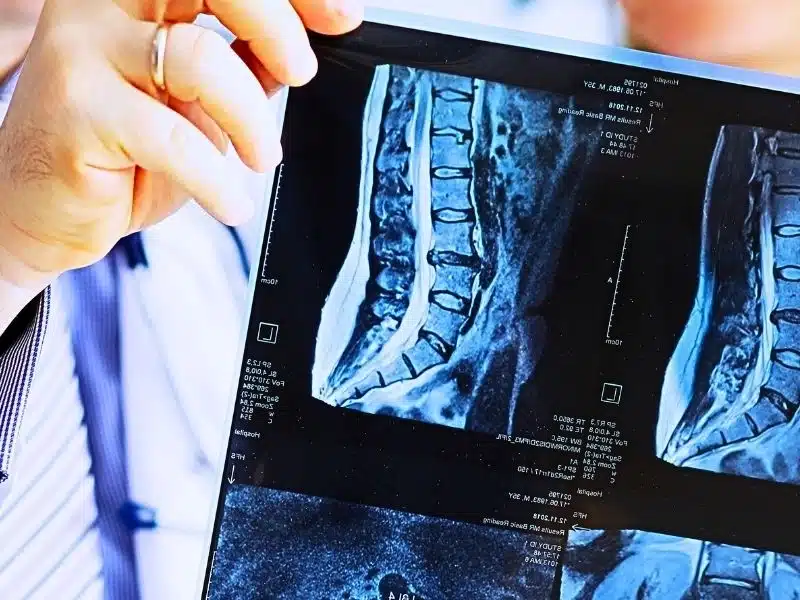If you were exposed to legionella bacteria from a building’s water system, you should consider hiring a legionnaires’ disease lawyer right away. An attorney can assist you in recovering compensation for your medical bills and other losses.
Property owners or managers who do not maintain water systems properly and do not take necessary measures to prevent the spread of legionnaires’ disease may be able to be held liable if their negligence causes people to suffer harm.
What Is Legionnaires’ Disease?
Legionnaires’ Disease is a type of pneumonia that is caused by infection with a bacteria called legionella. The legionella bacteria are typically inhaled when people are exposed to contaminated water or soil.
Legionella exposure may sometimes result in milder illnesses such as Pontiac fever. However, if left untreated, Legionnaires’ Disease can be fatal and lead to respiratory or organ failure. People with weakened immune systems, older adults, and smokers are more susceptible to complications from Legionella exposure.
Legionnaires’ disease is usually contracted in hotels, hospitals, or offices where the bacteria has contaminated the water supply. It is less likely to be contracted at home. Air conditioning systems, humidifiers, spa pools, hot tubs, and infrequently used taps and showers are common sources of the disease. Drinking water containing the bacteria, contact with infected individuals, or exposure to bodies of water such as ponds, lakes, and rivers generally will not cause the disease.
Legionellosis is the term used to refer to legionnaires’ Disease, the pneumonic form of a legionella infection, or Pontiac fever, the non-pneumonic form.
Symptoms and Severity of the Disease
Pontiac fever is a flu-like illness that usually lasts for 2 to 5 days. Its symptoms include fever, chills, headache, fatigue, and muscle aches. It is important to note that no reported deaths have been associated with this type of infection.
On the other hand, legionnaires’ disease has an incubation period of 2 to 10 days, and sometimes up to 16 days in certain outbreaks. Initially, symptoms include fever, loss of appetite, headache, malaise, and lethargy. Some people may also experience muscle pain, diarrhea, and confusion. A mild cough is common in the beginning, and up to 50% of patients may produce phlegm. About one-third of patients may experience blood-streaked phlegm, or hemoptysis. The severity of the disease can range from a mild cough to a rapidly fatal pneumonia. The disease can lead to death due to progressive pneumonia, respiratory failure, shock, and multi-organ failure.
Typical signs and symptoms of legionnaires’ disease include:
- Feeling like you can’t take a full breath.
- Coughing.
- Having pain or discomfort in your chest when you breathe or cough.
- Running a fever.
- Experiencing symptoms that resemble those of the flu.
Long Term Impacts for Victims
Survivors of legionnaires’ disease outbreaks may experience long-term health complications. A study in the Netherlands found that many individuals who survived a massive outbreak had persistent conditions for months after their initial diagnosis, treatment, and hospital discharge.
Fatigue
Fatigue is a feeling of exhaustion that affects both physical and mental health. It can lead to a lack of energy and motivation. Many medical conditions can cause it. According to the study, 75% of people with bacterial infections experience fatigue even after successful treatment. It’s a significant risk factor for those who recover from legionnaires’ disease.
Neurologic symptoms
Legionnaires’ disease can cause neurologic symptoms like confusion, difficulty speaking, altered consciousness, hallucinations, and delirium. After treatment, 66% of patients may experience memory loss and difficulty concentrating. Neuromuscular symptoms and PTSD are also reported. About 15% of people experience PTSD symptoms, including flashbacks, nightmares, severe anxiety, and uncontrollable thoughts.
Signs You May Need a Legionnaires’ Disease Lawyer
If you’ve been diagnosed with legionnaires’ disease, you may need to hire a legionnaires’ disease lawyer to help you recover compensation for damages. Property owners or managers can be held liable for the spread of legionnaires’ disease if they’re found to be negligent.
Failure to Properly Maintain Water Systems and Prevent Contamination
It’s important to have water management plans in place to prevent Legionella contamination and outbreaks. Regular maintenance, cleaning, and disinfection of cooling towers, along with the addition of biocides, are effective measures. Drift eliminators should be installed to reduce the spread of aerosols from cooling towers. Hot and cold water systems should be kept clean, with hot water above 122°F and cold water below 77°F. Unused taps should be flushed weekly to prevent stagnation.
By applying these controls, the risk of Legionella contamination can be greatly reduced, preventing sporadic cases and outbreaks. Regular water testing is necessary to prevent the growth of Legionella. In cases of an outbreak, additional follow-up testing may be necessary to ensure sustained suppression. Health departments usually require post-remediation water sampling to be done biweekly for a period of 3 months after treatment, followed by monthly tests for another 3 months. However, the schedule may need to be adjusted based on test results. If there’s an increase in the number of Legionella-positive sites or concentration, the testing schedule might need to be extended. Routine testing should be conducted to safeguard against Legionella growth.
Property owners or managers who fail to implement these measures may be liable if anyone contracts legionnaires’ disease on their premises.
Lack of Warning or Disclosure From Property Owners
Property owners have a legal obligation to take reasonable precautions to ensure the safety of their visitors and patrons. This includes preventing harm from hazardous conditions such as legionella on the property. The property owner must correct the hazard or implement safety measures to prevent any injuries to visitors.
If there is contaminated water with legionella or if there have been cases of visitors contracting legionnaires’ disease on the property, the property owner must disclose this risk to visitors. If the property owner fails to provide adequate warning or disclosure, and people contract legionnaires’ disease, the owner may be considered negligent and can be held liable.
The Legal Process for a Legionnaires’ Disease Claim
If you contracted legionnaires’ disease, you probably have a lot of questions about the legal process for your injury claim. Can you sue for a legionnaires’ disease outbreak? Who can you sue for your losses? What do you have to prove to recover compensation?
You may be able to sue various parties for injuries caused by exposure to the bacteria. For your lawsuit to be successful, you must be able to prove:
- You were infected with Legionella bacteria.
- The exposure to the bacteria happened at the location mentioned in the lawsuit.
- The owner or operator of the mentioned location was negligent, which led to the exposure.
- The exposure resulted in a confirmed diagnosis of legionnaires’ disease.
A legionnaires’ disease attorney can evaluate whether you have a valid case and guide you through the legal process of seeking compensation. This includes:
Filing a Lawsuit and Gathering Evidence
When it comes to a legionnaires’ disease lawsuit, it’s important to gather evidence to prove your claim and establish liability. The evidence required may vary depending on the specifics of your case, but certain types of evidence are commonly relevant in these lawsuits. This includes medical records, documentation of your damages, expert opinions, inspection reports, witness testimony, and safety protocols and maintenance records.
Your attorney will investigate to collect evidence to support your legionnaires’ disease claim. This may involve reviewing your medical records, inspecting the place where you contracted the disease, obtaining opinions, collecting witness statements, and analyzing relevant documents and records.
Once the investigation is complete, your attorney will file a lawsuit against the responsible parties. The lawsuit will outline the facts of the case, your damages, and the legal basis for holding the defendants liable.
Discovery Phase and Settlement Negotiations
In the discovery phase, both sides share pertinent information and evidence. This could involve written inquiries, demands for document production, witness testimonies and expert analyses.
The purpose of discovery is to allow each side to evaluate the strengths and weaknesses of the case and to facilitate settlement negotiations.
Sometimes, instead of going to trial, parties involved in a legal dispute may decide to settle through negotiations. Your lawyer will represent you in these negotiations, working to achieve a reasonable settlement that covers your losses. If a settlement is successfully reached, it can avoid the need for a trial.
Trial and Possible Outcomes
In case a settlement cannot be achieved, the lawsuit will proceed to trial. During the trial, the plaintiff and defendant will present their arguments, evidence, and witness testimony to the judge or jury. Your attorney will represent you and present a compelling case to defend your rights. Subsequently, the judge or jury will make a decision. The Court may find the property owner or manager liable for you contracting legionnaires’ disease, in which case they will determine the amount of damages you will be awarded, or they may decide that there is no liability, and you are not entitled to any damages.





